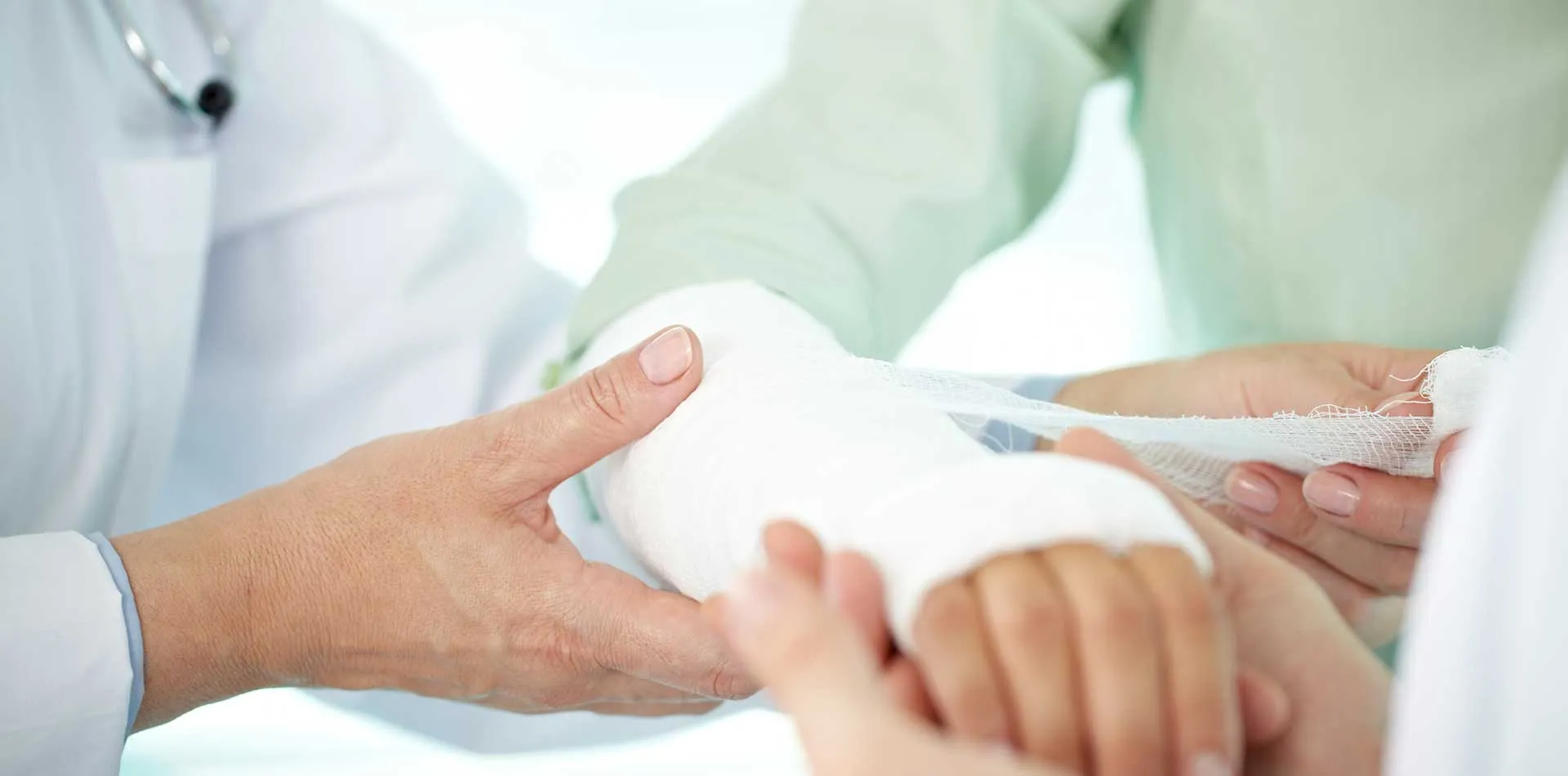
A broken hand occurs from direct blows or falls, causing a break or crack in one or more of the bones of the hand. Some motor vehicle crashes may cause hand bones to break into many pieces that need surgical repair.
Sports like football or hockey can raise the risk of a broken hand. When people have osteoporosis, bones become thinner and more fragile; they are at a higher risk. Treat a broken hand at the earliest to heal the damage and get back the proper alignment. Otherwise, the injury can impair your ability to do daily activities like writing or buttoning a shirt. Early treatment is crucial to minimize pain and stiffness.
A broken hand causes signs like swelling, tenderness, bruising, severe pain that worsens when gripping or squeezing or moving the hand, and numbness in the hand or fingers. The other indications are deformities, such as a crooked finger and stiffness or inability to move the fingers or thumb.
Talk to the doctor; when you think there is a broken hand, especially signs like numbness, swelling or difficulty in moving the fingers, a delay in diagnosis and treatment may result in poor healing, a decline in the range of motion and grip strength.
A direct blow, a crushing injury or motor vehicle crashes may lead to hand fractures, sometimes serious injuries causing multiple breaks that often require surgical repair.
People playing in sports like football, soccer, rugby, or hockey are at higher risk of a broken hand and those with osteoporosis, a condition that weakens bones, also have an increased risk of a fractured hand.
Some rare complications of a broken hand are:
• Ongoing stiffness, aches or disability in the affected area, which usually recovers after the cast is removed or post-surgery. However, in a few cases, it remains as a permanent stiffness or pain. Be patient with your recovery, and get a doctor's advice asking about exercises that help or referral for physical or occupational therapy.
• Fractures may spread into a joint, causing arthritis years later. But when your hand starts to hurt or swell long after a break, consult a doctor for an evaluation.
• Injury to the hand may cause damage to adjacent nerves and blood vessels. Get medical attention when you experience numbness or circulation problems.
These tips may provide some protection.
• Build bone strength with a nutritious diet, eat adequate calcium and vitamin D
• Perform plenty of weight-bearing exercises, like brisk walking
• Smokers must quit smoking.
• Preventing falls or hand fractures by protecting yourself from injuries: -
a) Wear sensible shoes, remove things like throw rugs that may cause you to trip over in your home.
b) Light up the living space
c) Have your vision checked and, if needed, corrected
d) Install grab bars in the bathroom and handrails on the stairways
e) Avoid slippery surfaces
Patient Experience